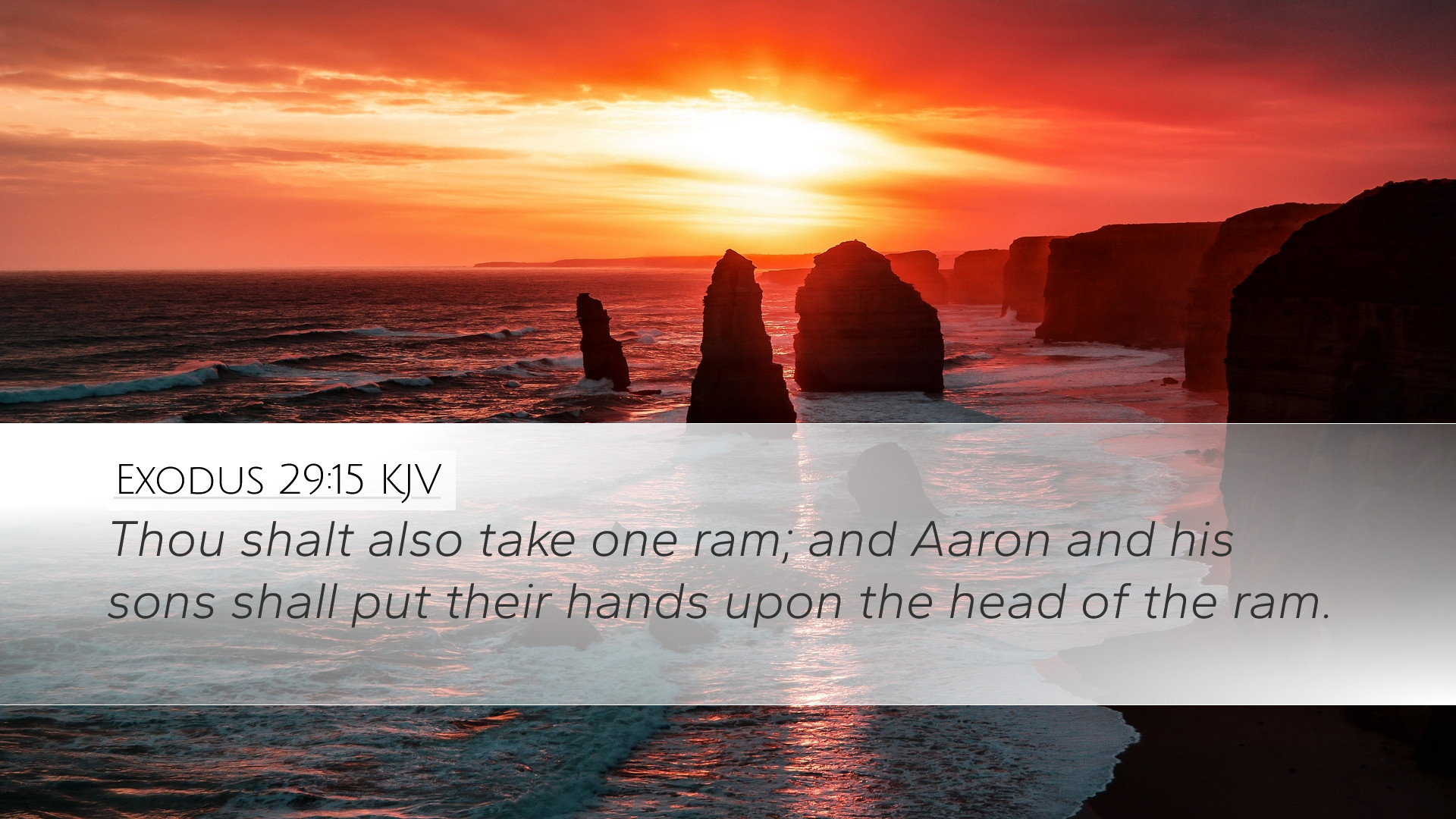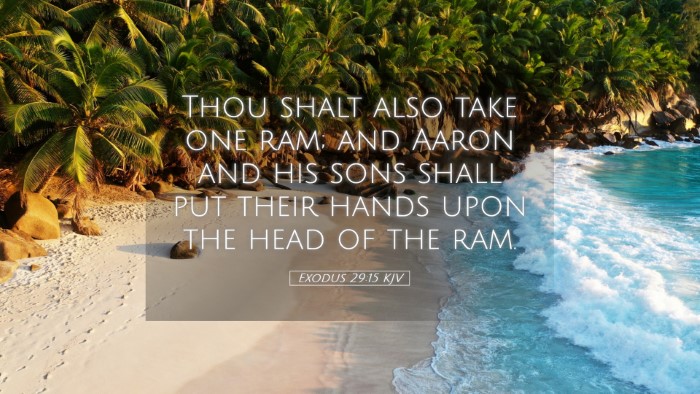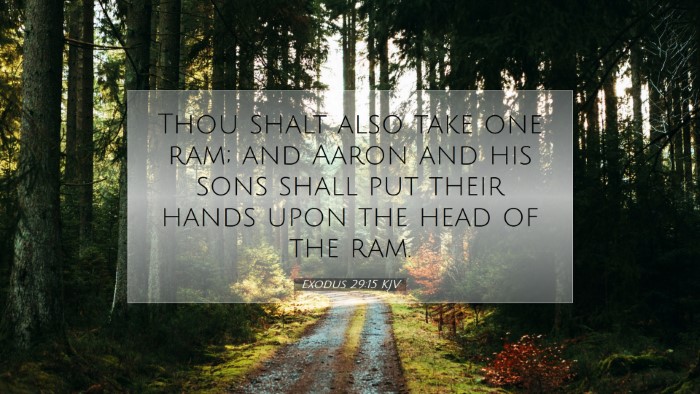Commentary on Exodus 29:15
Exodus 29:15 states, "Thou shalt also take one ram; and Aaron and his sons shall put their hands upon the head of the ram." This verse is part of the instructions given to Moses regarding the consecration and ordination of Aaron and his sons as priests of the Lord. This pivotal moment in Israel's history signifies not only the establishment of the priesthood but also lays foundational principles regarding sacrifice and consecration.
Overview and Significance
This verse highlights the role of the ram within the context of the sacrificial system in ancient Israel. The act of Aaron and his sons laying their hands on the ram symbolizes the transfer of guilt and the sins of the people onto the chosen sacrificial animal. This ritualistic gesture signifies that the ram is offered not merely as an animal but as a substitution for the priests themselves, an act of atonement that is deeply woven into the fabric of Israel’s worship practice.
Commentary Insights
Matthew Henry Commentary
Matthew Henry provides insight into the ceremonial aspects surrounding this sacrificial act. He notes that “the laying on of hands signifies the transference of the offeror's sins, and thus, the ram becomes an expiation for the sins of its bearer.” This highlights not just the ritual action but its underlying theological significance—the recognition of sin and the necessary response of atonement which foreshadows the ultimate sacrifice of Christ.
Albert Barnes Commentary
Albert Barnes expounds that the ram represents both "an offering to God and a means of atonement." He mentions that the entering into this solemn act forms a covenant relationship between God and His chosen priests, illustrating the seriousness of their role. Barnes further elaborates that the act of putting hands on the ram indicates a physical and spiritual connection, marking the importance of the priesthood being reconciled with God through sacrifice.
Adam Clarke Commentary
Adam Clarke emphasizes the cultural and theological dimensions of this ceremony. He points out that the ram's offering should be considered “a symbol of the dedication of the priest’s life to the service of God.” Clarke adds that this rite of laying on hands serves as an essential initiation ritual, marking the transition of Aaron and his sons into their sacred roles. He stresses that this is a call for purity and holiness, which is paramount for those serving as intermediaries between God and the people.
Theological Implications
This passage invites deeper theological reflections, particularly on the themes of sacrifice, atonement, and intercession. The consecration of Aaron and his sons through such a tactile and physical act serves as an archetype for understanding the nature of Christ’s high priesthood. Just as the ram bears the weight of the sins of the priests, so too does Christ bear our sins through His sacrifice on the cross.
Moreover, the intentional involvement of the priests in this offering underscores the idea that true worship is participatory. This enhances the notion that all believers are called to engage actively in their relationship with God, as seen in the New Testament's call for believers to present their bodies as living sacrifices (Romans 12:1).
Practical Applications for Ministry
This verse offers several applications for pastors and ministry leaders today:
- Emphasizing the Importance of Holiness: Just as Aaron and his sons were consecrated for service, contemporary leaders must embody holiness in their personal and professional lives, reflecting the character of God to their congregations.
- The Role of Intercession: Understanding that priests are called to intercede for others can inspire pastors to take up the mantle of prayer for their communities, recognizing the weight of this responsibility.
- Encouraging Sacrificial Living: In a culture often characterized by self-interest, this passage calls believers to a lifestyle that serves others, akin to the sacrificial acts seen in Scripture.
Conclusion
Exodus 29:15 provides deep insights into the nature of sacrifice and the positional role of priests in the Old Testament. Through the lenses of Henry, Barnes, and Clarke, we uncover truths not only about the ancient practices but also about the continuing relevance of sacrificial atonement in Christian life. This verse serves as a profound reminder of God's desire for relationship with His people, a theme that reverberates throughout the entirety of Scripture.


